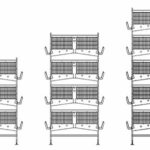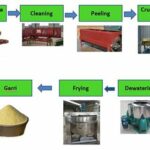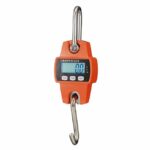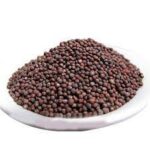Keep your poultry healthy and happy with essential biosecurity measures! Learn how to prevent disease outbreaks, protect your flock, and ensure a thriving poultry operation.

Keeping your poultry flock healthy and thriving is every bird owner’s dream. But did you know that biosecurity is the key to achieving this dream? Biosecurity refers to a set of practices designed to prevent the introduction and spread of diseases in your birds. By implementing these essential biosecurity measures, you can create a safe haven for your feathered friends and ensure they live long, productive lives. Biosecurity is essentially a set of practices to shield your flock from disease-causing agents like viruses, bacteria, and parasites. It’s like a protective bubble for your birds.
Why Biosecurity Matters
Poultry diseases can be devastating, causing illness, death, and significant economic losses. Biosecurity is your proactive approach to protecting your flock from these threats. By keeping diseases out, you’ll save money on vet bills, lost birds, and medication, while also enjoying the satisfaction of knowing your birds are healthy and happy.
Top Biosecurity Measures for Your Poultry
- Planning is Everything: Develop a biosecurity plan tailored to your specific needs. Consider factors like your flock size, location, and potential disease risks in your area. Consult a veterinarian for guidance on creating a comprehensive plan.
- Control Access to Your Coop: Limit access to your coop and establish designated entry points. Enforce biosecurity protocols for everyone entering, including visitors, staff, and yourself. This may involve requiring clean footwear, coveralls, or footbaths.
- Quarantine New Arrivals: Isolate new birds for a designated period (typically 30 days) before introducing them to the main flock. This helps prevent the spread of any potential diseases they might be carrying.
- Maintain a Clean Coop: Regular cleaning and disinfection of your coop are crucial. Remove manure and debris daily, and disinfect the coop thoroughly at least once a week.
- Create a Buffer Zone: Establish a perimeter fence or other barrier around your coop to deter wild birds and other animals that might carry diseases.Ensure Feed and Water Safety: Provide your birds with clean, fresh water and high-quality feed from reputable sources. Store feed in sealed containers to prevent contamination by rodents or pests.
- Implement Pest Control: Rodents and wild birds can carry diseases. Implement a pest control program to keep these unwanted visitors away from your coop.Vaccinate Your Flock: Discuss a vaccination program with your veterinarian to protect your birds from common poultry diseases.
- Monitor Your Birds Regularly: Observe your birds for any signs of illness, such as lethargy, decreased appetite, or abnormal droppings. Early detection can help prevent the spread of disease.
- Train Everyone Involved: Educate everyone who comes in contact with your birds about biosecurity practices. This includes family members, friends, and any hired help.
The Benefits of Biosecurity: A Healthy Investment
Biosecurity is a crucial investment for any farm operation, offering a range of benefits that contribute to a healthy and successful business.
Improved Animal Welfare: By preventing the introduction and spread of diseases, biosecurity practices keep animals healthier. This reduces suffering, improves their quality of life, and minimizes the need for antibiotics and other treatments.
Enhanced Food Safety: Healthy animals contribute directly to safe food products. Biosecurity measures help prevent contamination from harmful pathogens, ensuring consumers receive high-quality, healthy food.
Increased Farm Profitability: Healthy animals are productive animals. By reducing illness and death, biosecurity safeguards livestock and poultry, leading to increased production, lower veterinary costs, and overall improved farm profitability.
In essence, biosecurity is a win-win situation. It protects animal health, ensures food safety, and strengthens the economic viability of farms.
Building a Strong Biosecurity Program: Essential Actions

A strong biosecurity program is essential for protecting your flocks from infectious diseases. By implementing a comprehensive set of measures, you can significantly reduce the risk of disease introduction and spread. Here are some essential actions to consider:
- Age Segregation: Separate birds of different ages to minimize the transmission of diseases between age groups. Chicks are particularly susceptible to infections.
- Monitoring Bird Health: Regularly monitor your birds for signs of illness, such as lethargy, loss of appetite, respiratory problems, or abnormal droppings. Early detection and isolation of sick birds are crucial for preventing outbreaks.
- Perimeter Control: A well-maintained fence will help to keep out wild birds and other animals that can carry diseases.

In conclusion, biosecurity is an essential practice for any poultry owner, regardless of flock size. By following these simple biosecurity measures, you can create a healthy and safe environment for your birds, reduce the risk of disease outbreaks, and ensure their overall well-being. Remember, a healthy flock is a happy flock, and biosecurity is the key to achieving this!













